|
Brought to you by Dairy's Professional Development Organization®
|
|
Opportunities to learn...
WHAT IMPACT WILL PROPOSED IMMIGRATION CHANGES
have on your dairy and Wisconsin agriculture? Join us on July 18 or 19 at a Lunch n' Learn meeting to find out for yourself. Erich Straub, experienced immigration attorney, will present two sessions of "Rural Labor in the Trump Era" to help dairy farmers better understand what is rhetoric and what is reality. He'll also outline the risks for those who rely on immigrant labor. PDPW's new Lunch n' Learn series will cover different topics throughout the year and feature a lunch with a meeting to run from 11:30 a.m. to 2:30 p.m. Registration for the Lunch n' Learn program is open exclusively for dairy farmers.
Click here
to learn more. Visit www.pdpw.org or contact PDPW at 800-947-7379 to register. Earn up to 2 Dairy AdvanCE Credits.
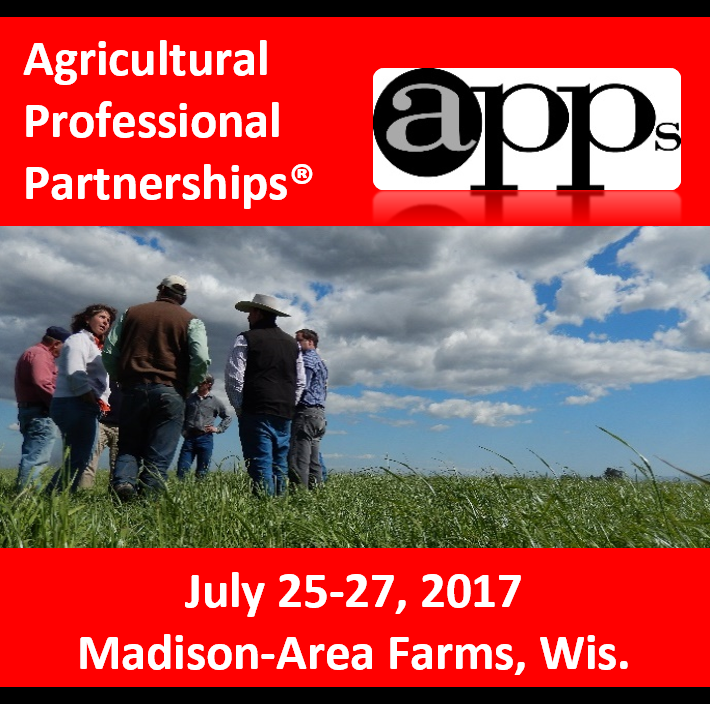
ON-FARM TRAINING AND INSIGHTS FOR NON-FARM INDUSTRY PROFESSIONALS
is the focus of the Agricultural Professional Partnerships® (APP) program. Scheduled for July 25-27, 2017, training consists of on-site and classroom sessions, participants will depart from Madison, Wis., for training held on-site at modern dairy farms in the area. The program includes three modules, each designed to provide an overview of key elements of modern dairy farming. Modules include the Fundamentals of Dairy Science; Farming, Field and Food Fundamentals; and Fundamentals of Dairy Business Management. Each participant will receive a resource guide with relevant reference material and facts pertaining to the module for the day. Call 800-947-7379 to register, or learn more click
here
. Earn up to 22.5 Dairy AdvanCE Credits.
DAIRY DIALOGUE DAY TOUR SET FOR AUGUST 16
with tours of two dairy farms in south-central Wisconsin. The day-long chartered bus tour will visit Wargo Acres, owned and operated by the Carncross family near Lodi, Wis., and Blue Star Dairy, owned and operated by the Meinholz family near Middleton, Wis. UW-Madison Dairy Science Professor Dr. Randy Shaver will facilitate discussions focused on achieving reproduction goals, managing high production, developing quality genetics, optimizing calf growth, and exploring different types of stall bedding and cow comfort.
Space is limited to the first 50 dairy farmers, the registration includes bus travel, refreshments and lunch. To learn more about the August 16 Dairy Dialogue Day Tour and to register
click here
or contact PDPW at 800-947-7379. Earn up to 4 Dairy AdvanCE Credits.

BENEFITS OF KEEPING DRY COWS COOL is the focus of the next World Class Webinars on Wednesday, July 26. Dr. Geoffrey Dahl, professor and chair of the University of Florida Department of Animal Sciences, will present "Dry Cow Cooling: It's Not All a Vacation" from noon to 1 p.m. CDT online. Dr. Dahl will discuss the aftermath of heat stress and what it can do to mammary growth, metabolism, and immune function and will also cover the economic impacts of dry cow cooling. A September 27 session will be presented by Dr. Geof Smith of North Carolina State University and will focus on minimizing the effects of weather on calves. Registration is open for one or both sessions by visiting www.pdpw.org or contacting PDPW at 800-947-7379. Registered participants can watch the sessions live or at a later time via recording.
MARK YOUR CALENDAR FOR ACE (Agricultural Community Engagement) ON-THE-FARM TWILIGHT MEETINGS
in August.
Community leaders and dairy producers are invited to attend meetings to discuss issues important to our rural communities and economies. Each evening begins at 6:00 p.m. and features a 60-minute tour of the hosting dairy, followed by open dialogue and ice cream. The meetings are jointly presented by Wisconsin Counties Association, Wisconsin Towns Association and Professional Dairy Producers and are open to the public. Hosting dairies include:

- Monday, August 28, Brooks Farms near Waupaca, Wis.
- Tuesday, August 29, Mar-Bec Dairy near Mondovi, Wis.
- Wednesday, August 30, Cozy Nook Farm near Waukesha, Wis.
- Thursday, August 31, Ripp's Dairy Valley near Dane, Wis.
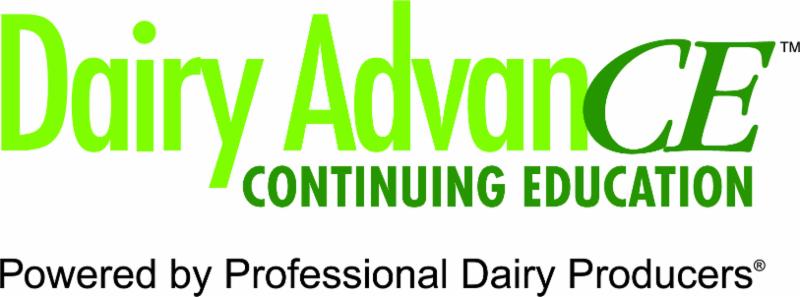 WHAT ARE DAIRY ADVANCE™ CONTINUING EDUCATION CREDITS? WHAT ARE DAIRY ADVANCE™ CONTINUING EDUCATION CREDITS? PDPW is proud to
introduce and invite you to participate in Dairy AdvanCE - the nation's first go-to resource to find, track and report continuing education in dairy. Farmers and allied industry can now find vetted trainings from trusted education providers, track and manage their continuing education credits (CEs), and report their CEs through an official transcript.
With over 300 active dairy subscribers, we are proud of the uptake from dairy farmers and other allied industry dairy professionals. You can see our past and future accredited trainings, as well as other top-quality educational offerings from trusted education providers like ours, at
DairyAdvanCE.org.
Dairy farmers and active students subscribe for FREE and allied industry professionals can use a FREE 30-day trial subscription.
Join Today or to learn more
watch this video.
For questions email: mail@dairyadvance.org, or for additional discussion call 800-947-7379.
|
For your dairy...
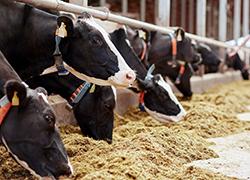 ADOPTING AND COMPLYING WITH SYNCHRONIZATION PROTOCOLS IS KEY ADOPTING AND COMPLYING WITH SYNCHRONIZATION PROTOCOLS IS KEY to reproductive success. According to an article by University of Minnesota-Extension, the average 21-day breeding cycle conception rate in the U.S. is 18%, while some dairies maintain a 21-day conception rate of more than 30%. The authors note that the difference is in strict protocols for estrus detection, especially in timed-AI programs.
Simulations performed by researchers at the University of Florida and the Ohio State University estimate a decline of six percentage points in 21-day pregnancy rate and an increase of approximately 40 days on a herd's median days open if estrus detection efficiency drops from 60 to 40%. Effectively detecting which cows do not respond to hormonal treatments will also allow producers to make better reproductive decisions. Learn more in this
article.
WHAT IS THE OPTIMAL AGE OF FIRST CALVING?
That was the question examined by researchers in a recent Journal of Dairy Science article. They reviewed phenotypic records for more than 14 million Holstein, Jersey and Brown Swiss cows calving between 1997 and 2015 from the U.S. national dairy database. A lower age at first calving (AFC) was correlated with greater fertility and higher milk yield for all but the earliest group - those who calved at 18 to 20 months. They estimated that the AFC at which maximum production and optimal stillbirth rates for Holsteins and Brown Swiss is 21 to 22 months; and 20 to 21 months for Jerseys. Learn more
here.
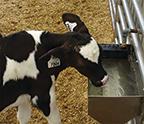 WATER IS ESSENTIAL TO HEALTHY CALVES
from day one, and especially during summer heat. Research shows that calves
under heat stress will drink between six and 12 quarts of water daily just to maintain normal hydration. Severely sick calves under heat stress sometimes require up to 20 quarts to replace what's been lost. An article by Iowa State University Extension provides guidelines for supplying an adequate and safe water supply, including
periodically testing water sources for bacteria and mineral content. Calves are very sensitive to sodium and do not tolerate excess sodium well. Water that has passed through a water softener can have very high concentrations of sodium and should not be used to mix milk replacer or used as a source of drinking water unless it's been tested and verified to have levels of sodium below 100 ppm. Read the full article with other tips
here
. WATER IS ESSENTIAL TO HEALTHY CALVES
from day one, and especially during summer heat. Research shows that calves
under heat stress will drink between six and 12 quarts of water daily just to maintain normal hydration. Severely sick calves under heat stress sometimes require up to 20 quarts to replace what's been lost. An article by Iowa State University Extension provides guidelines for supplying an adequate and safe water supply, including
periodically testing water sources for bacteria and mineral content. Calves are very sensitive to sodium and do not tolerate excess sodium well. Water that has passed through a water softener can have very high concentrations of sodium and should not be used to mix milk replacer or used as a source of drinking water unless it's been tested and verified to have levels of sodium below 100 ppm. Read the full article with other tips
here
.
|
Hit the road...
SUMMER IS IN FULL SWING it is a perfect time to take a
break and enjoy some dairy goodness. Here are two ideas of places to visit:
MARIEKE GOUDA Store & Café DUTCHess
200 W. Liberty Drive, Thorp, Wis.
Penterman Farm: Owned and operated by Rolf and Marieke Penterman
Marieka Gouda Store & Café DUTCHess features cheese handcrafted onsite, as well as a variety of local foods and products from Holland. The Penterman farm is located across the street and offers a viewing window and tours. Learn more on their
Facebook page and
website.
KELLEY COUNTRY CREAMERY
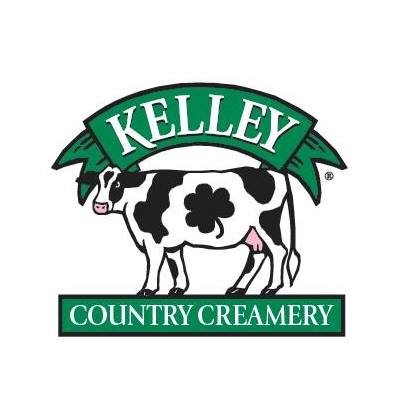
W5215 County Road B, Fond du Lac, Wis.
Owned and operated by Karen and Tim Kelley and family
Visitors to Kelley Country Creamery can enjoy old-fashioned premium ice cream and sundaes, you can even watch the ice cream being made through a viewing window. Check out the ice cream flavors and learn about tours on their
website and
Facebook page.
|
CHOOSE THE RIGHT SUNGLASSES TO PROVIDE THE MOST PROTECTION during summer and all year long. Sunlight reflecting off sand, water and even snow, increases exposure to ultra-violet radiation and increases the risk of developing eye problems. When using sunglasses, the FDA recommends:

- Choose sunglasses labeled with a UVA/UVB rating of 100%
- Do not mistake dark-tinted sunglasses as having more UV protection. The darkness of the lens does not indicate its ability to shield eyes from UV rays
- Consider large, wraparound-style frames, which may provide more efficient UV protection because they cover the entire eye socket
- Understand that sunglasses with a higher price don't necessarily ensure greater UV protection
- Contact lens wearers should wear sunglasses that offer UV protection
- Know that sunglasses are the most effective when worn with a wide-brim hat and sunscreen.
Learn more about sunglasses and sun safety
here
.
 NEW YOGURT PRODUCTS: IS FRENCH THE NEW GREEK? Changes in the U.S. yogurt market continue as two of the biggest players recently announced the addition of new product styles to their lineups. Chobani is adding new non-Greek style yogurts called "Chobani Smooth." The company says the new American-style yogurts have a lower amount of sugar than traditional yogurts. General Mills' Yoplait brand is venturing into a new class of yogurt with its new French-style product named "Oui." According to General Mills, French-style yogurt differs from regular yogurt because it's made in glass jars in small batches with minimal ingredients, mimicking how yogurt was made in French farmhouses a century ago. NEW YOGURT PRODUCTS: IS FRENCH THE NEW GREEK? Changes in the U.S. yogurt market continue as two of the biggest players recently announced the addition of new product styles to their lineups. Chobani is adding new non-Greek style yogurts called "Chobani Smooth." The company says the new American-style yogurts have a lower amount of sugar than traditional yogurts. General Mills' Yoplait brand is venturing into a new class of yogurt with its new French-style product named "Oui." According to General Mills, French-style yogurt differs from regular yogurt because it's made in glass jars in small batches with minimal ingredients, mimicking how yogurt was made in French farmhouses a century ago.
MAKING ACCURATE COMPARISONS BETWEEN AMOUNTS OF ANIMAL AND HUMAN WASTE was the focus of a research report compiled by Cornell University Extension this summer. The analysis was prompted by inaccurate claims in a New York lawsuit that the amount of waste produced by 200 cows was equivalent to that produced by a city of 96,000 people. However, on account of the vast differences in nutrient content in excrement of people versus cows, the calculation was grossly inaccurate - ten times too high, in fact. The authors point out that making sound policy decisions begins with all parties having access to accurate and complete information. Click here to read the full article.
|
For your business mind...
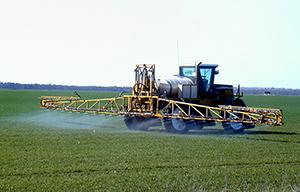 KNOW THE RULES FOR NITROGEN INHIBITOR/STABILIZER APPLICATION
In order to address confusion over commercial application of nitrogen inhibitors/stabilizers, the Wisconsin KNOW THE RULES FOR NITROGEN INHIBITOR/STABILIZER APPLICATION
In order to address confusion over commercial application of nitrogen inhibitors/stabilizers, the Wisconsin Department of Agriculture, Trade and Consumer Protection (DATCP) has issued a factsheet to address the use of nitrogen inhibitor/stabilizers that are registered pesticides, such as the product Instinct
©. In summary, mixing a nitrogen-inhibiting pesticide with a fertilizer does not create a treated substance, but rather creates a pesticide-fertilizer mixture. Therefore, someone who commercially applies the pesticide-fertilizer mixture - such as a contract manure hauler - is a commercial pesticide applicator and needs to be certified and licensed as such.
Read the fact sheet
here
and contact Otto Oemig at 608-224-4547 or
datcppesticideinfo@wisconsin.gov with questions.
 NEW DOCUMENTARY TAKES SCIENTIFIC LOOK AT THE GMO DEBATE.
Films like "Food, Inc" take a critical look at modern agriculture and food production, often focusing on emotional issues. However, a new scientific documentary titled "Food Evolution" was released in June and it provides an inside look at several global agricultural situations in Hawaii, Uganda and other locations. It also highlights the scientists working on the challenges and technologies that could solve issues if they were implemented. The film is narrated by noted scientist Dr. Neil deGrasse Tyson. The film has received positive reviews for its balanced and scientific approach to biotechnology and other modern agricultural technologies. Learn more at the
Food Evolution website
. NEW DOCUMENTARY TAKES SCIENTIFIC LOOK AT THE GMO DEBATE.
Films like "Food, Inc" take a critical look at modern agriculture and food production, often focusing on emotional issues. However, a new scientific documentary titled "Food Evolution" was released in June and it provides an inside look at several global agricultural situations in Hawaii, Uganda and other locations. It also highlights the scientists working on the challenges and technologies that could solve issues if they were implemented. The film is narrated by noted scientist Dr. Neil deGrasse Tyson. The film has received positive reviews for its balanced and scientific approach to biotechnology and other modern agricultural technologies. Learn more at the
Food Evolution website
.
EARNING EMPLOYEE RESPECT STARTS WITH FOUR BEHAVIORS
that need to be demonstrated by top managers and leaders. These leaders are more likely to share the spotlight with their team and use their power and status to benefit the people who work for them. The four behaviors shown by strong leaders are:
- respecting others
- listening more; talking less
- acquiring feedback about their leadership habits
- building trust that leads to healthy business outcomes
Read the full article
here
.
|
Meet fellow PDPW dairy members....
 |
|
 |
Jay & Pam Binversie |
Adopting new technologies and practices for their manure-handling system is just one of the ways that Jay and Pam Binversie of Robinway Dairy, LLC near Kiel, Wis., have made improvements in cow comfort, efficiency and profitability while also expanding their dairy operation.
Jay and Pam met in college, were married in 1993 and purchased the original farm from Jay's parents Bob and Janet, who started the dairy in 1958. They were milking 200 cows then increased to 400 cows and expanded a few more times. They now care for 1,550 dairy cows and calves and 700 steers and manage 1,400 crop acres with the help of 30 employees.
The Binversies have significantly reduced their environmental footprint by installing a Livestock Water Recycling System that separates liquids from solids and then further separates it using reverse osmosis to make clean water for irrigation. The system concentrates phosphorus, ammonia, potash and nitrogen which allows for strategic fertilizer application reducing the risk of nutrient runoff and ground water contamination. Using this system, Jay has irrigated 600 crop acres using eight pivots since 2011.
Their most recent expansion was possible because of the ability to irrigate and increase feed production without needing to add additional land or build more lagoons. They also constructed a more efficient commodity shed so feed is now stored inside in bins, eliminating mechanical and wind shrink.
In addition, they decided to eliminate mattresses and use sand bedding exclusively. Their newest barn is tunnel-ventilated and provides a more consistent temperature in both winter and summer. And the constant breeze eliminates fly problems.
Finding and keeping good help is a challenge on their farm but Pam says, "We have really good employees in management positions. They can speak the language of their workers and they're able to evaluate their work better than we can... because they're with them."
Heifers five to 20 months old are raised off-site in Colorado on a ranch co-owned with seven other dairy producers in their area. Together, the group hired a manager for this enterprises - The Heifer Authority (THA). Weekly, the investors meet for updates on the animals raised at the ranch.
On the home farm, calves are raised in individual hutches under the guidance of the calf manager and helpers. All dairy animals are in new facilities; steers are raised in greenhouses and slatted-floor barns.
As overall manager of the farm, Jay believes in the importance of ongoing learning. He gets valuable ideas from many sources, including PDPW programs, farm tours, conducting online research and networking with other farmers. In fact, he says what he enjoys most about PDPW conferences is the networking. "I really enjoy the smaller meetings and the break-out sessions at the conference where farmers interact and share ideas."
|
"The things we fear most in organizations - fluctuations, disturbances, imbalances - are the primary sources of creativity."
--- Alfred North Whitehead
|
|
A BIG Thank You...
TO OUR PDPW SPONSORS who
support continuous improvement for the dairy industr
y.
T
hey believe in producer leadership and place a high value on lifelong
education for those involved in the dairy industry. We deeply respect their commitment to PDPW and the members we have the honor to serve.
continue to invest and build a strong industry. If you interact with any of these companies, please thank them for supporting PDPW!
If you or a company you know is interested in participating as a sponsor, please contact one of our team members at
abonomie@pdpw.org
or call 800-947-7379.
|
|
PDPW Education Calendar
| July 18 |
Lunch N' Learn with attorney Erich Straub: Eau Claire, Wis.
|
| July 19 |
Lunch N' Learn with attorney Erich Straub: Chilton, Wis.
|
| July 25-27 |
Agricultural Professional Partnerships (APPs): Madison, Wis.
|
| July 26 |
World Class Webinars: Abating Weather-Related Stress in Dairy with Dr. Geoffrey Dahl - "Dry Cow Cooling: It's Not All A Vacation": Online
|
| August 12-22 |
PDPW International Dairy Tour to Ireland - Sold Out |
| August 16 |
Dairy Dialogue Day Tour: Lodi, Wis. and Middleton, Wis.
|
| August 28 |
ACE Twilight Meeting: Brooks Farms near Waupaca, Wis.
|
| August 29 |
ACE Twilight Meeting: Mar-Bec Dairy near Mondovi, Wis.
|
| August 30 |
ACE Twilight Meeting: Cozy Nook Farm near Waukesha, Wis.
|
| August 31 |
ACE Twilight Meeting: Ripp's Dairy Valley near Dane, Wis
|
| September 27 |
PDPW World Class Webinars - Abating Weather-Related Stress in Dairy with Dr. Geof Smith - "Minimizing the Effects of Weather on Calves": Online
|
| January 16-18, 2018 |
2018 PDPW Managers Academy for Dairy Professionals: Orlando, FL
|
| March 14-15, 2018 |
2018 PDPW Business Conference "Dairying to Thrive": Madison, Wis.
|
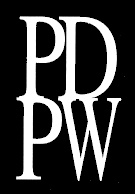
STAY CONNECTED
800-947-7379
|
|
|
|
|